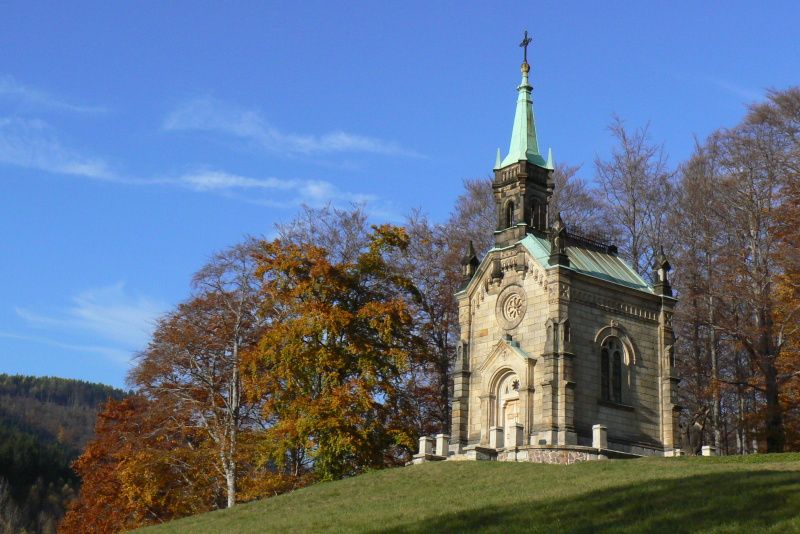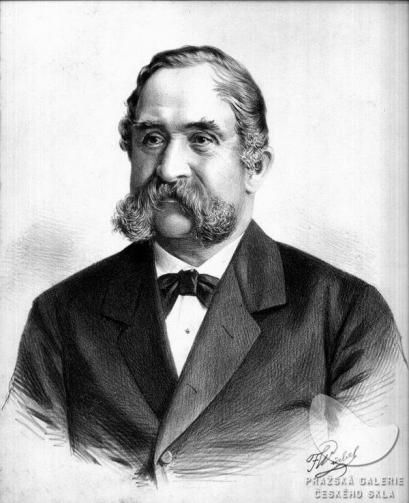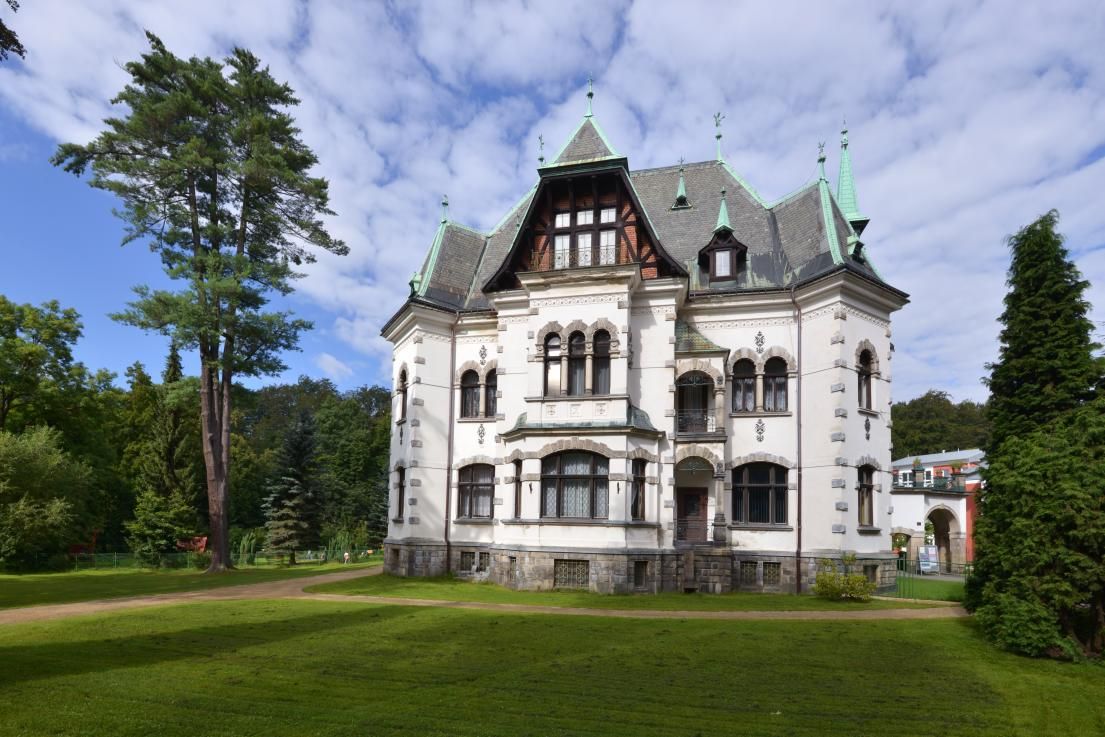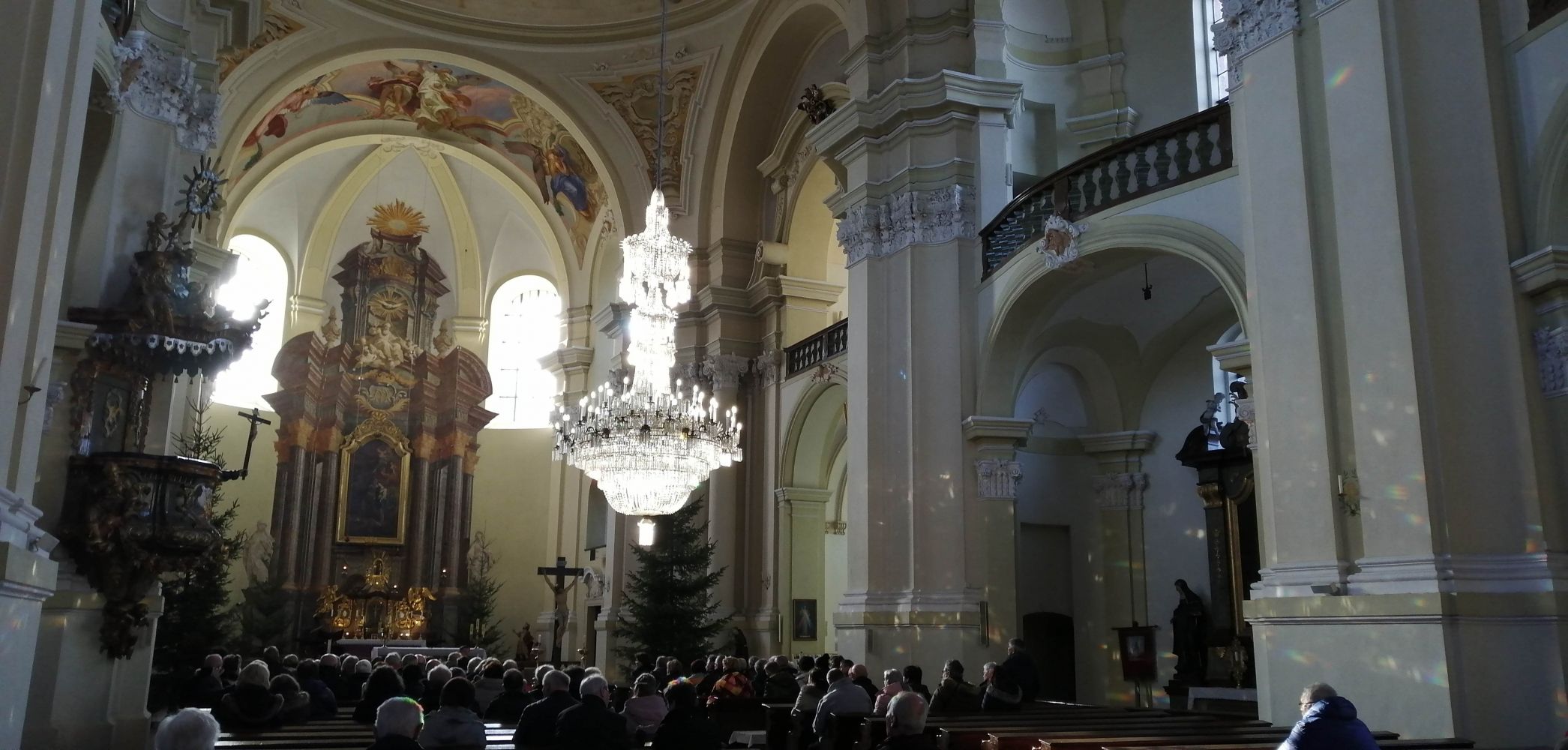This story starts with a murder. According to a popular legend, in the Baroque era, a certain glass merchant was wandering in the countryside, an area later named Saxon Switzerland. On his way from Růžová to Srbská Kamenice, he got ambushed by two criminals who cut his throat. Nevertheless, they did not find the gold that he had hidden in a mug full of lard. This is how they told the story. The merchant´s name was Christoph Riedel. And with his name starts the amazing history of eleven generations of glassmakers, the history of one of the most famous glass family – the Riedel family.
The most famous became Josef Riedel, the 6th generation of this glass family. He perfected the typical family entrepreneurship, foresight and assertiveness. He was even called the Glass King of the Jizera Mountains.
He was born on the 19th of December 1816 in Haindorf, that was in 1923 renamed as Hejnice. His father had a grocer´s store in the town. However, as he was Riedel, he was trained as a glass painter. Fourteen years later young Joseph travelled to Antonínov and started his apprenticeship at his uncle Franz. He travelled on foot over the hill Čihadlo and then trough deep Jedlový důl, a valley decorated by the cascade of waterfalls, till he came to the valley of the river Kamenice – to glassworks in Antonínov. Josef was indeed lucky to have someone he could learn from. His uncle Franz was an excellent glass engraver and very skilful businessman. Joseph´s eyes shone with happiness as his uncle guided him around the glassworks. He showed him jewellery rods, sticks and stones, glass for pressing, as well as hollow glass and flacons. Josef was born for this world.
Soon, Franz understood that his nephew is Riedel, that he is imaginative and skilful. He learned so fast that four years later when Joseph was only nineteen years old, his uncle could send him to the glassworks Jizerka to become the manager. Joseph proved himself. However, a nineteen-year-old boy cannot live only for work. Of course, he was peeking at girls. More specifically, he was interested in one special girl. Her name was Anička. She was beautiful, smart and familiar with glassmaking. Nevertheless, there was one big problem. Anna Riedel was his cousin.
“Isn´t it against god?” whispered Anna, while they were dazedly walking hand in hand around the stream called Safírový Potok. Joseph tightened his lips and blurted defiantly: “It is not! Could such love be against God? I will never give you up, Anna. Even if the whole world was against us!” his eyes flashed as he meant it. Could it be any other at twenty? Their love, at first carefully kept secret, gradually ceased to be a mystery. Thus, when Joseph turned twenty-five, he summoned up his courage and asked his uncle for permission to marry his daughter Anna. Franz Riedel agreed! It was quite convenient for the family, plus cousin is not a sister.
It was the year 1844 when Franz Riedel died. Anna became the heir. However, it was Joseph who took over the management of the company, and that was a happy and very significant moment because that is how Joseph Riedel started his journey to the glass throne. Four years later, Anna gave birth to their son Hugo, then Wilhelm and Otto. Later they welcomed also their daughter Marie. Over the ten years, great things happened not only in the family but also in the company.
As it turned out, Josef Riedel was a very gifted businessman. From the very beginning, he was very wise and farsighted. He knew very well that it is not worth having all eggs in one basket, that the basis of success is to spread the risk. First, he bought glassworks in Polaun, today´s Polubné, and that was a very smart move. One year earlier, archduke Štěpán began to supervise the construction of the imperial road through the Giant Mountains that led from Liberec to Trutnov with connection to Central Bohemian road network. That was a revolution in production possibilities in this area. Josef Riedel was one of the first to take advantage. The glass factory was only two years old, yet Josef started to rebuild it according to his ideas.
Subsequently, his life was marked by another death. His wife did not recover from the birth of their daughter and died when she was only thirty-five years old. Josef worked hard for the next three years to finish the construction of glassworks in Polubné. When it was ready, he moved there with his family so he could control his glass empire.
A year passed in Polubná and Josef got married again. This time, he married Johanna, daughter of the chief forester of Clam-Gallass estate, where belonged Jizerka as well. It was hard to shake off the feeling that it was, at least to a certain extent, a marriage of convenience, or a smart business move at least. Thanks to new father-in-law, it was much easier to get wood from Count´s forests. And if we believe gossips, Johanna was no Anna. She did not look as Anna, and Josef was certainly not up to great happiness. Once again, the end justifies the means.
Josef Riedel knew that glassmaking is a traditional, yet quite unpredictable industry. Therefore, he was thinking about how to stabilize his empire even more. And it was a no-brainer, it was enough to look around. Due to the improving traffic and technological progress, the textile industry flourished. Well, I might turn to cotton, said Josef to himself and started to build a modern equipped spinning mill. Only four years later, it was fully functioning, producing five hundred cotton spindles a year. This volume doubled over the next four years.
However, the glassmaking was still at the top. Josef very quickly caught on the trend. The sixties were a blessing for the production and sales of jewellery. Josef immediately starts the construction of new glass hut in Kořenov. One year later, he starts working on the second glassworks in Jizerka, while expanding the original glassworks and adds two additional furnaces. The production focuses mainly on the jewellery components and small glass objects that end up with customers in London, Viena, Berlin, Constantinople, Paris and Amsterdam.
Josef continues to modernize the production – switches wood for gas heating. For this purpose, he started to use completely new regenerative bath furnace, invented by Friedrich Siemens. This meant 50% savings in heating costs! Josef knew that he would technologically reach the top and that he could withstand market fluctuations. As if he knew, what would happen in the years to come.
The seventies brought a new, and completely unknown phenomenon – the first-ever world economic crisis, deep depression that destroyed many dreams. That was not a case of Josef Riedel. On the contrary, he is expanding his empire. How? His business stands on solid grounds, built for decades. At the same time, facing the signs of crisis, Josef starts to make targeted investments. It is necessary to cut inputs, especially energy. Thus, he bought a brown coal mine in Hostomice near Teplice. Then he started the construction of service railway from Tanvald, to get most effectively the coal to Polubné. What are some other emerging areas? Tourism and spa industry. Might be surprising, but Josef invested in this area as well. He bought peat baths in Kořenov and established modern bathhouse.
At that time, Josef and his sons were already working together. They all were showing strong technological talent from a very young age. Wilhelm, for instance, developed a new system of the shaping of hollow glass using compressed air. Quite talented was also young Josef, the son from the second marriage. He later started to show a talent for exploring and became the author of several inventions. Among other things, he expanded the range of colours and contributed to the development of modern signal technology. The oldest son Hugo took over the glassworks´ management in Polubná and immediately came with a new article. They start to produce luxurious hollow glass that instantly wins a golden medal at the World Expo in Vienna.
Meanwhile, Josef focuses on the expansion of his empire. During the next ten years, he buys and builds four more huts. He also purchases land, and in 1882 he owns more than two hundred areas in Polubné. He is one of the first to establish a telephone line. Only two years after Edison´s invention of the bulb, Josef installs in his factories electric light to prevent fire. He also starts to expand the range of goods – starts the production of optical lenses for the lights in lighthouses, introduces ground-breaking operational and technical innovations and improves glass decorating. He names the colours after his first wife – “Anne green” and “Anne yellow”, which are terms that we still use today.
Josef feels that now is the time to consolidate family property. His sons, now also his company partners, take over the responsibility for the management of the company and Josef slowly retreats to the background. And he was satisfied. He had built a great glass empire, that is still unprecedented. He became one of the most important industrialists of the Austrian Hungarian Empire of 19th century and a pioneer of modern business. He never tried to defeat the opposition by discounts. On the contrary, he held price high and guaranteed the precise quality of his products. He also lived long enough to be awarded a Knight´s Cross of the Order of Francis Joseph the First. Pope granted him the Order of the Holy Cross. He was very active in local government, in the Chamber of Commerce and Trade, in dozens of business organizations and countless associations in and out of the Jizera Mountains region. At the end of the century, he was employing nearly three hundred people.
When he died in April 1894, crowds of people came to his funeral. He was buried in the family tomb, built by his son Wilhelm according to the design of architect Adolf Bürger. It was built due to the unexpected death of Wilhelm´s brother Hugo, who was the head of the family empire. People cried. They liked their “father”, as they called him. He was always fair to them. He was demanding, yet appreciative boss. They did not even know he thought of them in his will. Josef Riedel left an amount exceeding hundred thousand in gold to the employees and poor, or sick people. The Glass King Josef the first.
The glory of the Riedel family did not end with Josef´s death. The foundations were solid, and two world wars failed to erode them. Of course, there were sacrifices – Josef´s descendants sold the textile factories, modernized glass huts and the whole production of glass, they were still betting on the expanding of the range of goods and modern technologies. Company’s collections were celebrated at the World Expo in Paris and Brussels and largely contributed to the image of Czechoslovak pavilion at the World Exhibition in Paris in 1937. After the annexation of Sudetenland by Germany, they were forced to switch to military production. They survived it too. However, what they could not survive was the post-war development in Czechoslovakia. Some of the best glassmakers in Europe had to leave the country, where they had worked for more than two hundred years.
Yet, the glory of the Riedel family did not fade. Northern Bohemian family – The Swarovski family took over and provided them with assistance in Austria. The Riedel family was able to purchase a glass hut in Tyrol Kufstein and use their centuries-old experiences for further expansion. They focused mainly on manually and later machine-blown wine glasses. They were the first to notice that the shape of the glass influences the taste of the wine. They came with the concept of different wine glasses. For each wine category, they created a glass with a specific shape and size. And that is the reason why the Riedel brand is still very present on the market. The eleventh generation has continued to spread the glory that started The Glass King Josef.

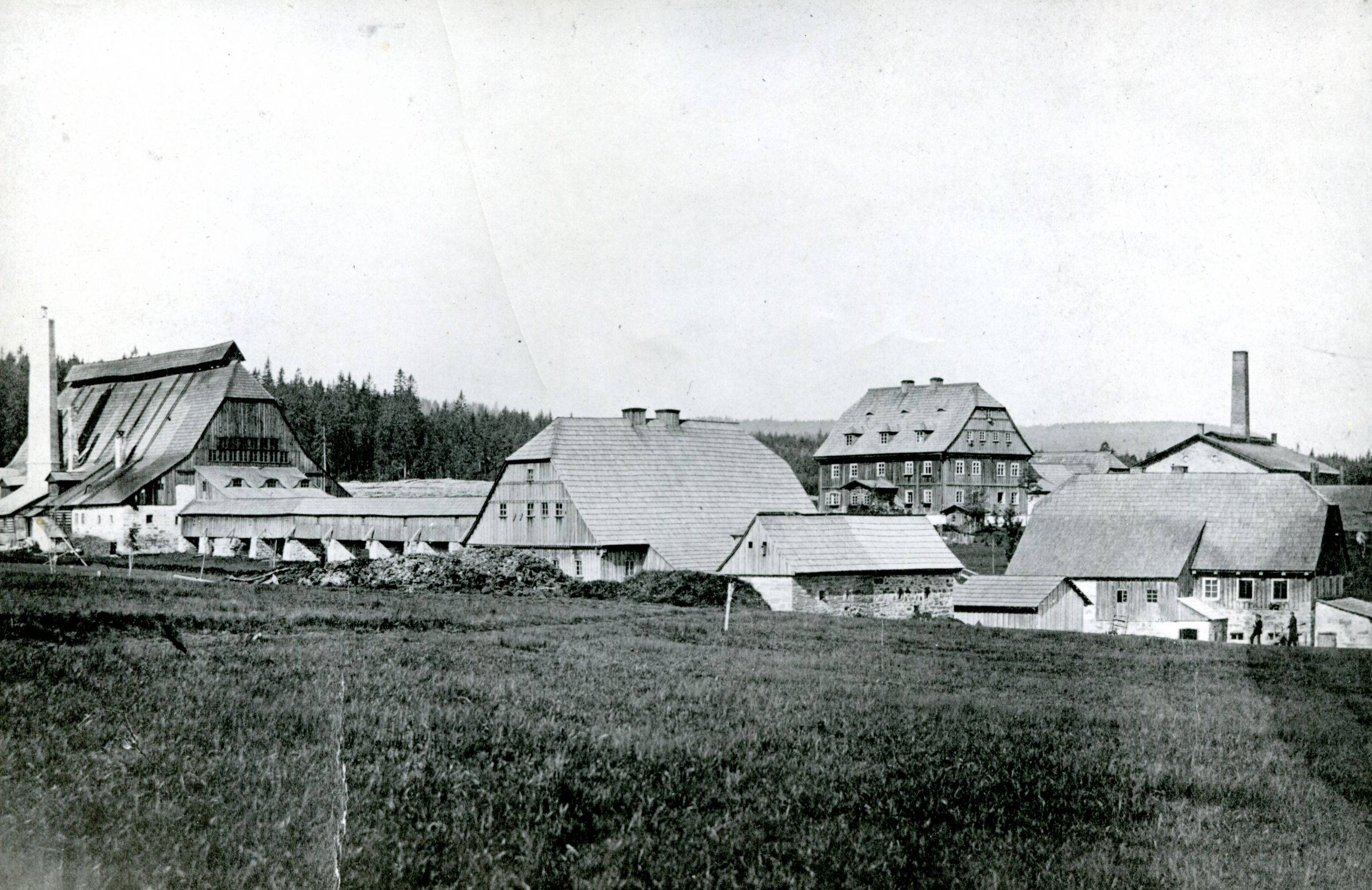
 See & Experience
See & Experience

